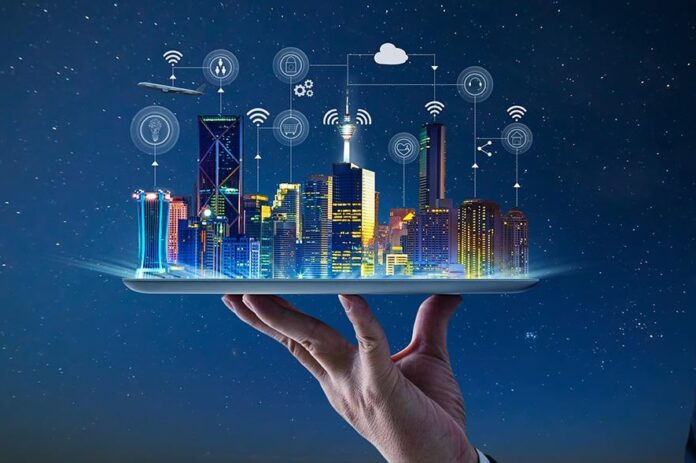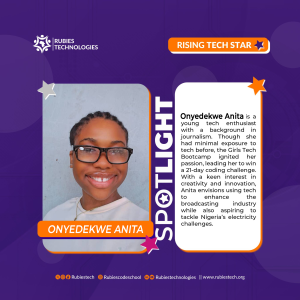As we step further into the digital age, the concept of smart cities is becoming more than just a futuristic vision, it is rapidly becoming a reality. At the forefront of this transformation is 5G technology, which promises to revolutionise urban living through improved infrastructure, transportation, healthcare, and citizen engagement. In this blog post, we will explore the role 5G technology plays in advancing smart cities.
Understanding 5G Technology
5G, the fifth generation of mobile networks, offers unprecedented speed, reduced response interval, and greater capacity compared to its predecessors. This new technology allows for the uninterrupted connection of billions of devices, creating a robust Internet of Things (IoT) ecosystem. 5G is not just about faster internet on your smartphone, it is about creating an interconnected ecosystem where everything from traffic lights to healthcare systems can communicate in real-time.
This ultra-reliable, high-speed connectivity is what makes 5G the backbone of smart cities. It enables the integration of various technologies, such as the Internet of Things (IoT), artificial intelligence (AI), and big data analytics, to create a cohesive, efficient, and responsive urban environment.
Infrastructure Development
One of the primary areas where 5G is making a significant impact is in urban infrastructure. Smart cities rely on a network of sensors and devices to collect data and manage resources efficiently. 5G enables real-time data transmission, allowing city officials to monitor traffic patterns, energy usage, and public safety in real-time.
For instance, smart traffic lights can adjust their timing based on current traffic conditions, reducing congestion and improving air quality. Additionally, 5G supports the development of smart grids that optimise energy distribution, allowing cities to respond quickly to fluctuations in demand and minimise outages. This level of connectivity not only enhances operational efficiency but also contributes to sustainability efforts.
Transportation Innovations
The transportation sector stands to benefit immensely from 5G technology. With the rise of autonomous vehicles, the need for reliable, high-speed communication is critical. 5G facilitates vehicle-to-everything (V2X) communication, allowing cars to communicate with each other and with infrastructure, such as traffic signals and road sensors. This connectivity can lead to safer roads, reduced traffic accidents, and improved traffic flow.
Imagine a city where traffic lights adjust in real-time based on current traffic conditions, or where autonomous buses and taxis navigate the streets with accuracy, reducing the need for human drivers and minimising accidents. This level of coordination is only possible with the high-speed, low-latency connectivity provided by 5G.
Moreover, public transportation systems can leverage 5G to provide real-time updates to passengers about delays and schedules, enhancing the overall commuting experience. For example, smart buses equipped with 5G can communicate with traffic management systems to find the quickest routes, ensuring timely arrivals and departures.
Advancements in Healthcare
Healthcare is another sector that will be transformed through 5G technology. The ability to transmit large amounts of data quickly and reliably can enhance telemedicine services, making healthcare more accessible to underserved populations. Remote patient monitoring, enabled by 5G, allows healthcare providers to track patients’ health metrics in real-time, facilitating timely interventions.
Additionally, 5G’s low latency is crucial for tele-surgery, where surgeons can operate remotely using robotic systems. This capability can bring specialised medical care to remote areas, significantly improving health outcomes. The integration of 5G with emerging technologies like artificial intelligence (AI) and the IoT can create a connected healthcare ecosystem that is predictive, preventative, personalised, and participatory, often referred to as 4P medicine.
Enhancing Citizen Participation in City Governance
5G technology also plays a vital role in fostering citizen engagement within smart cities. With enhanced connectivity, residents can access a wide range of services and information through mobile applications. For instance, citizens can report issues like potholes or broken streetlights directly to city officials through user-friendly apps, promoting a sense of community involvement.
Furthermore, 5G enables the development of smart kiosks and public Wi-Fi hotspots, providing residents with easy access to city services and information. This increased accessibility not only empowers citizens but also fosters transparency and accountability in local governance.
Addressing Challenges and Concerns
Despite the numerous benefits, the implementation of 5G technology in smart cities is not without challenges. The infrastructure needed for 5G, such as small cell towers, can cause visual concerns among inhabitants. The high costs associated with deploying 5G networks may pose financial challenges for some cities, especially in economically rural areas.
Also, cybersecurity is a critical issue, as the increased connectivity can expose smart city systems to potential cyber threats. Ensuring robust security measures and data privacy protocols will be essential to protect sensitive information and maintain public trust.
The role of 5G in advancing smart cities is transformative, offering a myriad of benefits across various sectors, including infrastructure, transportation, healthcare, and citizen engagement. As cities continue to evolve into smart ecosystems, the integration of 5G technology will be pivotal in enhancing the quality of life for residents and creating sustainable urban environments.
While challenges exist, the potential of 5G to revolutionise urban living is massive. As we move forward, embracing this technology will be crucial for building smarter, more connected cities that meet the needs of their inhabitants. The future of urban living is bright, and 5G is at the centre of this exciting transformation.



